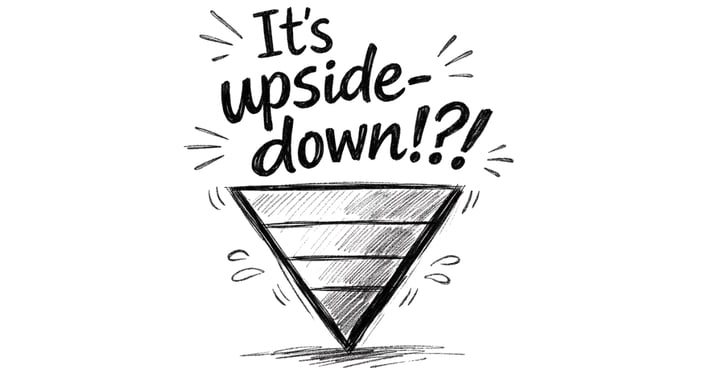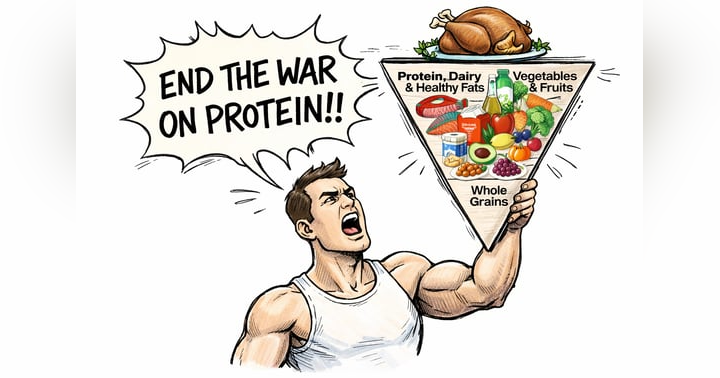Rethinking Alcohol: Evidence-Based Guidance for Today's Healthcare Providers
The landscape of alcohol consumption guidance is shifting significantly. U.S. Surgeon General Dr. Vivek Murthy has just released a groundbreaking advisory highlighting the direct connection between alcohol consumption and cancer risk, urging a warning label to be placed on alcohol. As healthcare providers, we need to understand these findings and their implications for patient care.
Understanding the Scale of the Problem
The numbers are sobering: alcohol is now recognized as the third leading preventable cause of cancer in the United States, following only tobacco use and obesity. Each year, alcohol consumption contributes to approximately 100,000 cancer cases and 20,000 cancer-related deaths in our country – surpassing even alcohol-related traffic fatalities.
What's particularly concerning is the awareness gap: while 91% of Americans recognize tobacco as a cancer risk factor, only 45% understand alcohol's role in cancer development.
The Cancer Connection: What We Know
Research has established clear links between alcohol consumption and at least seven types of cancer:
- Breast cancer
- Colorectal cancer
- Esophageal cancer
- Liver cancer
- Oral cavity cancer
- Pharyngeal cancer
- Laryngeal cancer
Notably, these risks exist regardless of the type of alcoholic beverage consumed – wine, beer, and spirits all carry the same risks. For breast cancer specifically, research indicates that alcohol consumption contributes to 16.4% of total cases.
Current Recommendations for Alcohol Consumption
The U.S. Dietary Guidelines currently recommend:
- Women: No more than one drink per day
- Men: No more than two drinks per day
However, it's crucial to note that recent research challenges the notion of "safe" moderate drinking. Even consumption within these guidelines may increase cancer risk, particularly for breast, mouth, and throat cancers, where risk can begin to rise with just one drink per day or less. The relationship between alcohol consumption and cancer risk appears to be incremental—the more you drink, the higher the risk. Or said another way, the dose is the poison. For example, the relative risk of breast cancer increases by 7% for every additional 10 grams of alcohol consumed.
Where does Wine Fit? Balancing Traditional Wisdom with New Evidence
As healthcare providers, we often field questions about red wine's place in healthy dietary patterns, particularly the Mediterranean diet. This topic has become increasingly complex as we balance traditional dietary wisdom with emerging cancer risk data.
Understanding the Mediterranean Diet Context
The Mediterranean diet has long included moderate wine consumption (traditionally 1-2 small glasses per day with meals) as part of its cultural and culinary framework. Recent research by Martínez-González and colleagues suggests that the Mediterranean diet's cardioprotective benefits may be partially linked to this moderate alcohol consumption, with studies showing up to a 30% reduction in cardiovascular disease risk compared to low-fat diets without alcohol.
However, this presents healthcare providers with a challenging paradox: how do we reconcile these potential cardiovascular benefits with the clear cancer risks outlined in the Surgeon General's advisory?
Key Points for Patient Discussions:
1. Age Matters
- For patients under 35, the recommendation is clear: abstain from alcohol as much as possible
- Young adults are particularly susceptible to alcohol's neurological impacts
2. Individual Risk Matters:
- Personal and family cancer history
- Genetic predisposition
- Environmental risk factors
- Cardiovascular risk profile
3. How you drink Matters
- Is alcohol being used as a coping mechanism?
- Is the patient binge drinking on weekends?
- Or is alcohol being enjoyed with a balanced meal among loved ones?
Practical Recommendations for Healthcare Providers
1. Integrate Alcohol Screening
Make alcohol consumption assessment a routine part of patient visits, particularly for those with family or personal histories of cancer.
2. Educate About Risk Factors
Help patients understand that alcohol-related cancer risk:
-
- Increases with consumption levels
- Exists regardless of beverage type
- Can begin at lower consumption levels than previously thought
3. Patient Communication Strategies:
-
- Frame the discussion around risk reduction rather than abstinence. There's no need to cause fear or anxiety.
- No single food or drink—in isolation— will make or break your health.
4. Special Attention to High-Risk Groups:
-
- Young adults, who may be particularly susceptible to alcohol-induced DNA damage
- Patients with family histories of alcohol-related cancers
- Those already diagnosed with cancer, as alcohol may affect recurrence rates
When discussing alcohol consumption with patients, particularly in the context of healthy dietary patterns, consider:
- Individual Risk Assessment: There is no one-size-fits-all recommendation. Each patient's advice should be tailored based on their age, risk factors, and overall health status.
- Clear Communication: Help patients understand that while moderate wine consumption may offer some cardiovascular benefits for certain populations, these benefits must be weighed against the now well-established cancer risks. Your habits over time are what matter MOST for your personal state of physical & psychological health.
As Benjamin Franklin famously said, "An ounce of prevention is worth a pound of cure." By having these conversations early and often with our patients, we can help them make more informed decisions about their alcohol consumption and potentially prevent future cancer diagnoses.
Remember, our role isn't to mandate abstinence but to ensure patients have accurate information to make informed decisions about their health.
I did a recent episode on the Exam Room Nutrition podcast called Can Alcohol Be Healthy?
Resources and further reading:
- https://www.hhs.gov/surgeongeneral/priorities/alcohol-cancer/index.html
- https://www.hhs.gov/about/news/2025/01/03/us-surgeon-general-issues-new-advisory-link-alcohol-cancer-risk.html
- https://hsph.harvard.edu/news/red-wine-mediterranean-diet/#:~:text=Research%20by%20Mart%C3%ADnez%2DGonz%C3%A1lez%20and,did%20not%20specifically%20include%20alcohol
- https://pubmed.ncbi.nlm.nih.gov/28546524/
- https://pubmed.ncbi.nlm.nih.gov/36615832/






